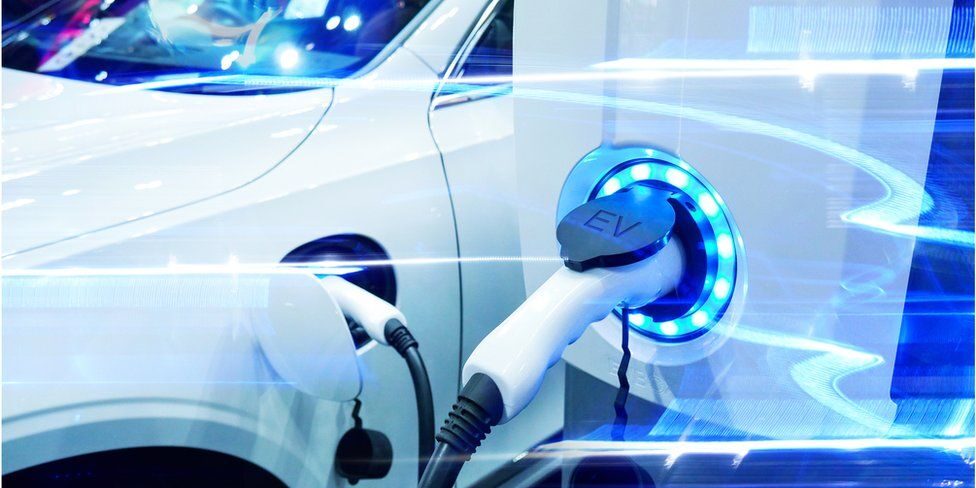Kenya is well suited to electric vehicles for a variety of reasons

Kenya, the largest economy in East Africa, has a great foundation for clean electric transportation, with over 90 percent of domestically produced electricity coming from renewable sources.
High prices, according to Fransua Vytautas Razvadauskas, who is a senior consultant dealing with mobility and cities at market research firm Euromonitor International, are a barrier to entry, as is infrastructure. “To avoid range anxiety, a significant supply of charging units, both public and private, is required for the Electric Vehicles rollout to be effective (in Kenya). As a result, significant investments in the modernization of electrical distribution units in households and businesses would be required, ” he clarifies.
Range concerns and charging infrastructure concerns are mitigated to some extent when electric vehicles are used for public transportation. A bus operator can design charging units based on how many miles it is going to go in a day, what route it will take, and where it will stop.
Opibus, based in Nairobi, provides obsolete vehicles a new lease on life by adapting them to operate on electric motors. The firm’s reach has since increased into public transportation with bus conversions, starting with 4x4s. Meanwhile, the company’s electric motorcycles, which are designed and built-in Kenya, have caught the interest of the world’s most well-known ride-hailing service.
Opibus launched an electric bus test in Nairobi in January, using off-grid solar power plants to charge the buses’ batteries (the firm sells off-grid solar modules as well as batteries, which are a clean fuel but also reflective of Kenya’s legacy of blackouts). The 51-passenger automobile has not yet been put through its paces in a commercial setting, but the business expects to do so later this year.
With a quickly growing population and expanding rapidly cities in Sub-Saharan Africa, Lövström believes buses will be an important component of the region’s network. “We truly believe that electric buses are a critical component of achieving this transition to electric cars and reducing emissions on a city and global scale,” he says.
In 2023, Opibus wants to produce the bus for the pan-African market. It is also up against rivals. BasiGo, a Kenyan startup, has announced that it would launch its own electric bus test program in March.
Two-wheeled revolution?
With its Kenya-made electric motorcycle, Opibus hopes to corner the market.
According to Lövström, the company opted to create its model from the ground up since no existing motorcycles met the criteria of local users. He continues, “We require something that is very powerful, highly versatile, very resilient, easy to fix, and inexpensive at the same time.”
“Nearly 90 percent of the motorcycles are produced and designed locally,” explains Lucy Mugala, an engineer of research and development who assisted in the development of the motorcycle. “(Electric vehicle production) is a relatively new industry in our area, so we’re something of a trailblazer.”
She claims that the motorcycle has progressed from a solitary onboard battery to dual removable batteries that are charged using a portable charger which can be plugged into any outlet. Docking stations with charged batteries, similar to today’s petrol stations, could be a presence in cities in the near future, according to Mugala.


 President Akufo-Addo Inaugurates Dualisation of Anwiankwanta-Ahenema Kokoben Road to Ease Traffic and Boost Connectivity
President Akufo-Addo Inaugurates Dualisation of Anwiankwanta-Ahenema Kokoben Road to Ease Traffic and Boost Connectivity  Power China Group Utilizes Linnhoff TSD1500 for Key Rural Road Projects in Kenya
Power China Group Utilizes Linnhoff TSD1500 for Key Rural Road Projects in Kenya  ECOWAS HQ construction draws closer to completion
ECOWAS HQ construction draws closer to completion  Nigerian President: Fuel Subsidy Removal Saves $1.32B in 2 Months
Nigerian President: Fuel Subsidy Removal Saves $1.32B in 2 Months  Tanzania’s Fuel Prices Surge Amid Cross-Border Fuel Sourcing
Tanzania’s Fuel Prices Surge Amid Cross-Border Fuel Sourcing  Israel to power Zambia with $100m. solar-wind energy project
Israel to power Zambia with $100m. solar-wind energy project  TENDER FOR THE ESTABLISHMENT OF CODING & ROBOTIC HUBS IN SCHOOLS | SOUTH AFRICA
TENDER FOR THE ESTABLISHMENT OF CODING & ROBOTIC HUBS IN SCHOOLS | SOUTH AFRICA  Angola-Zambia Road Project to Boost Trade and Economy in Eastern Angola
Angola-Zambia Road Project to Boost Trade and Economy in Eastern Angola